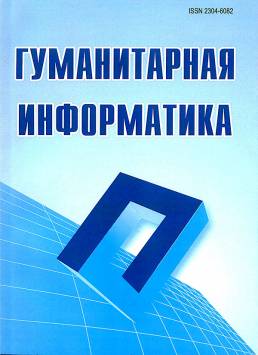SPECIFICS OF FUTUROLOGICAL KNOWLEDGE
Each field of scientific knowledge has its intrinsic canon of sufficient legitimation. Knowing about the future is no exception; futurological canon legitimizes beliefs and opinions about the future as knowledge of the future. At the moment, however, this canon is more implicit in a plethora of approaches, mindsets, and methodologies applied in futures studies than explicitly stated. Conception of the futures manifold is implicit in many approaches and mindsets of the futurological inquiry, and to study it is the object of the paper. Instead of considering the future as a single pre-determined case, a fan of possible futures, called futuribles is considered as a proper object of futurological conjecture.Scientific knowledge is nothing else than a well grounded true belief. All sciences from mathematics or natural sciences to social and humanistic sciences stick in this as an epistemological commitment. It means that a subjective belief, intuition or opinion is accepted as objective knowledge when there is sufficient evidence to “legitimate” that28Специфика футурологического знанияthe belief is true and credible. However, there is no universal theory of truth to be referred to by all the sciences; each of them has its intrinsic canon of necessary and suffi-cient legitimation, and the canons are not fully compatible with each other.The futurology is one of the actual directions of social philosophy reflecting the main tendencies of development of modern society. However, the futurology has limited methodological basis. In this regard consideration of features of the futurological knowledge including both theoretical, and practical forms of researches allows to track evolution of methods of forecasting. This work is devoted to justification of features of futurological knowledge.An account is given of futures research as a scientifically oriented field of knowledge. Its specific contemporary task as a study of transient change of the human society isdescribed and the futures research approach is outlined. A generalization of the concept of knowledge of the standard sciences is presented as a sine qua non to futurology. The relationship between knowledge and information is elaborated and clarified, which makes it possible to better understand the present era as an information age.The term we used to describe the study of alternative futures is important. Disciplines and discourses do not emerge from a vacuum but have a history and a cultural context; and their names can hide as much as they reveal. This paper examines such terms as ‘futurology’ and ‘foresight’, and argues that to emphasise plurality anddiversity the study of the future is best served by the moniker ‘futures studies’. It suggests that remembering the history of futures discourse is necessary to resolve the crisis of identity and meaning, and frequent fruitless reinvention, of the field. Finally, it presents Sardar’s four laws of futures studies.
Keywords
forecasting, futures studies, foresight, prediction methods, information society, forecasting, futurology, forecasting, futures studies, foresight, методы прогнозирования, информационное обще-ство, прогнозирование, футурологияAuthors
| Name | Organization | |
| Bakhareva V.A. | National Research Tomsk State University |
References
